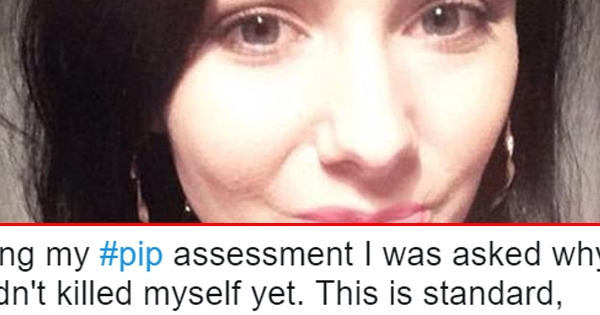Alice Kirby, 25 years old, took an assessment to gain health benefits for her mental health issues and was taken aback by one of the questions given to her. In the meeting, Kirby claimed that she was inquired about why she hadn’t killed herself yet. Kirby said that this is one of the “standard” questions asked to people with mental health issues.
According to Metro, Kirby described her whole experience with the Department of Work and Pensions as “institutional abuse.” She also claimed that she wasn’t the only one who received this question. The assessment is needed for personal independence payments or PIP.
Kirby, who’s from Sheffield, said, “It should be more widely acknowledged how humiliating and uncomfortable PIP and ESA assessments are made for disabled people. During my PIP assessment I was asked why I hadn’t killed myself yet.
“This is standard, assessors regularly ask this question. Let that sink in – government are hiring companies and telling them to ask disabled people why they haven’t killed themselves.”
Although she told DWP that health had become worse, her PIP went from a high to a standard rate.
Kirby said, “In this setting, it’s not safe to ask questions like these because assessors have neither the time or skills to support us, and there’s no consideration of the impact it could have on our mental health. The questions were also completely unnecessary, they were barely mentioned in my report and had no impact on my award.”
DWP assured that all of its staff had received training on mental health conditions and supports.
DWP said, “There are now more people with mental health conditions receiving the higher rates of both PIP components than the previous disability living allowance (DLA) equivalents. All PIP assessors receive training on mental health conditions, so they are able to explore claimants’ circumstances carefully and sensitively.”
Private companies were free to conduct their assessments for they’re not provided with any specific or suggested questions.
A spokesperson for Atos, which performed Kirby’s mental health assessment, said, “The professional and compassionate service we provide to claimants is our primary consideration.
“The specific question is inappropriate and if asked would not meet the high standards and training in place which enable the sensitive and appropriate handling of assessments by our professional assessors for those with mental health conditions.”
Kirby said, “The DWP have an agenda, they have targets to meet, and if my assessor had a target to cut someone down that week then she was going to meet that, despite my symptoms.”





